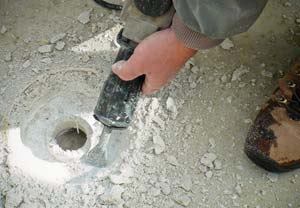Pool and spa professionals performing some VGB-related work may not be covered under their general liability insurance policies.
“If [professionals are] giving bad advice or not doing things that they’re supposed to do, they could leave themselves open to a … claim that would not be covered by their policies,” said Thomas J. Crowley, owner and partner of Maran Corporate Risk Associates, an insurance agency based in Southampton, N.Y.
In helping commercial pools come into compliance with the federal law, some industry members occasionally act as a consultant — inspecting the pool, prescribing the necessary alterations and signing off on it. In that case, general liability coverage purchased by a pool and spa company may not apply.
There is another kind of policy specifically made to protect companies from this kind of situation, called “professional liability” insurance. It is similar to the malpractice coverage purchased by doctors and attorneys.
“Professional liability covers opinions,” said Raymond Arouesty, president of Arrow Insurance Service, an agency based in Simi Valley, Calif.
The typical general liability policy specifically exempts this kind of coverage with a clause called a “professional exemption” or “professional exclusion.”
This insurance gap can pose a unique problem.
A new phenomenon specific to the VGB Act is beginning to spring up in some areas, such as Maryland and several Virginia counties. Health departments there require that pool professionals sign a form stating that a given vessel meets VGB requirements.
But signing these forms may nullify the general liability protection for that job, one agent noted.
“It’s the inspection and certification aspect that may throw the work coverage out the window which I’m afraid of,” said Craig R. Prescott, vice president of Georgetown Insurance Service Inc. in Silver Spring, Md. “In my mind, that could trigger the exclusion … whether they did [renovation] work or not.”
Industry members who need to sign these forms might want to consider purchasing professional liability coverage, experts said. However, this insurance can be expensive and hard to find. A better choice may be to avoid signing at all.
“It is the job of the county inspector to determine whether that pool is compliant with ordinances and law,” Arouesty said. “It is not the job of the contractor or service technician to certify compliance.”
Some customized pool-industry policies may include limited professional liability. For example, as part of its general liability for service technicians, Arouesty’s firm includes free professional liability coverage for inspections performed during the sale of a home. And Prescott recently arranged with Cincinnati Insurance Co. to begin offering a professional liability policy specifically for the pool and spa industry’s VGB work.
When your company takes on any new kind of work — VGB-related or otherwise — insurance professionals recommend you consult with your agent to find out exactly what’s covered.
“If they’re going to branch out to become experts dealing with VGB, [pool professionals] need to sit down with their insurance brokers and ask, ‘Where are my gaps in coverage?’” Crowley said. “And they have to weigh the benefit of the additional revenues vs. the exposure that they may face with gaps in their insurance. They may be able to buy some insurance to fill those gaps.”
Two insurers who regularly work with the pool industry — CNA and The Hartford — did not provide comments for this story.




